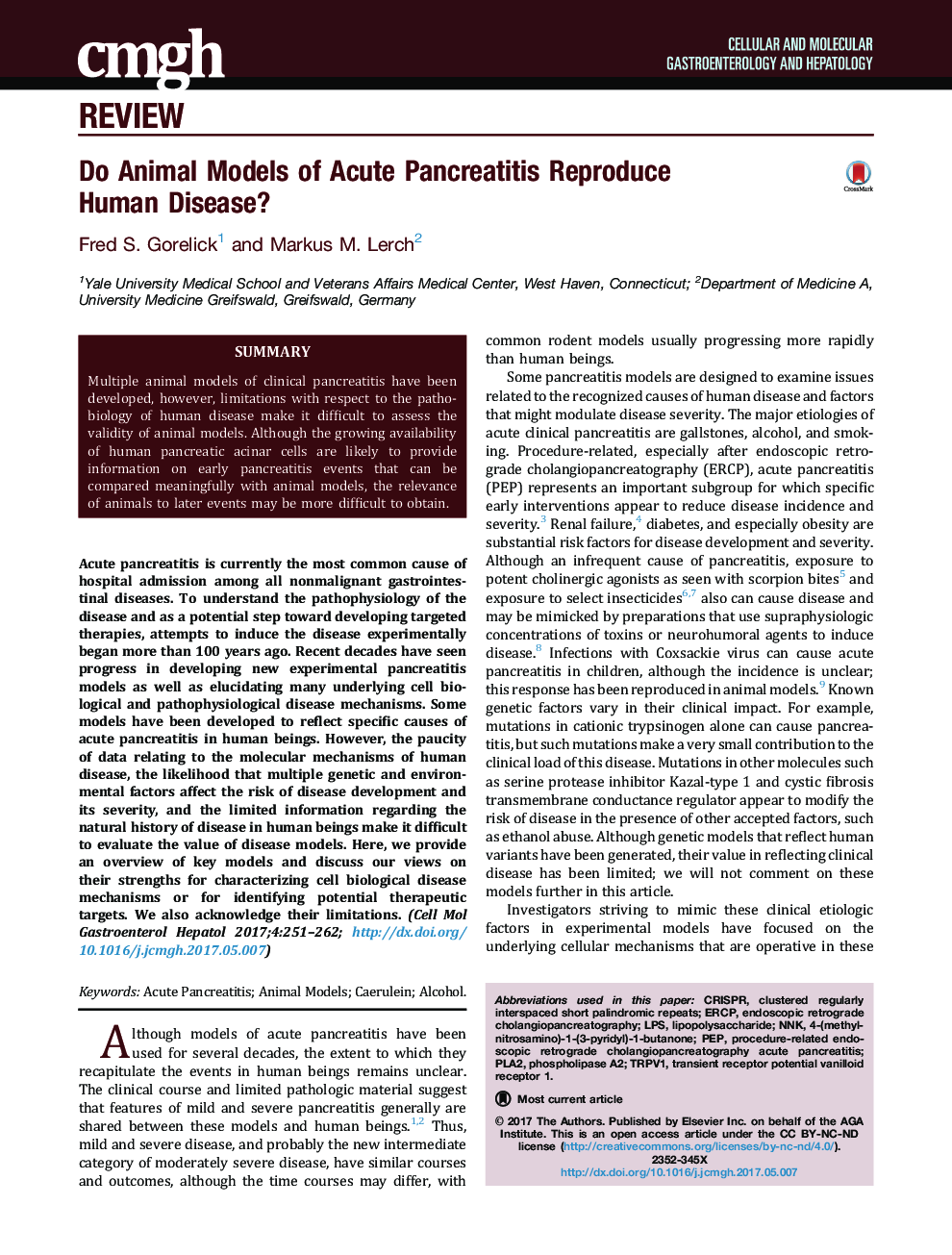| Article ID | Journal | Published Year | Pages | File Type |
|---|---|---|---|---|
| 5517200 | CMGH Cellular and Molecular Gastroenterology and Hepatology | 2017 | 12 Pages |
Acute pancreatitis is currently the most common cause of hospital admission among all nonmalignant gastrointestinal diseases. To understand the pathophysiology of the disease and as a potential step toward developing targeted therapies, attempts to induce the disease experimentally began more than 100 years ago. Recent decades have seen progress in developing new experimental pancreatitis models as well as elucidating many underlying cell biological and pathophysiological disease mechanisms. Some models have been developed to reflect specific causes of acute pancreatitis in human beings. However, the paucity of data relating to the molecular mechanisms of human disease, the likelihood that multiple genetic and environmental factors affect the risk of disease development and its severity, and the limited information regarding the natural history of disease in human beings make it difficult to evaluate the value of disease models. Here, we provide an overview of key models and discuss our views on their strengths for characterizing cell biological disease mechanisms or for identifying potential therapeutic targets. We also acknowledge their limitations.
